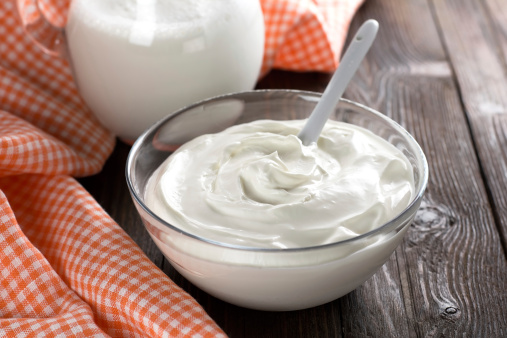Products rejected anti-cholesterolProdotti anticolesterolo bocciati

Anti-cholesterol foods rejected by ‘French Agency for Health Security
Available data do not allow us to consider the anti-cholesterol products (margarine and yogurt rich in phytosterols and stanols), an appropriate means of prevention of cardiovascular diseases. Indeed, these products are not recommended for pregnant or lactating women, and children. If on the one hand reduce the amount of cholesterol, although not in the same way for all the people, the other also reduce the amount of beta-carotene in the blood, increasing the risk of coronary heart disease. The reduction of beta-carotene must be compensated with a higher consumption of fruits and vegetables. The risks associated with taking these foods should therefore be assessed on a case-by-case basis, by a nutritionist. So says the French Agency for Food Safety Agency (Anses), which published its opinion on the risks and benefits of these products, L ‘intervention was requested in 2010 by the association of consumers UFC-Que Choisir, which demanding a review of the decision of the European food Safety Authority (EFSA) had authorized the use of two entries relating to products containing plant sterols and stanols (substances found naturally in plants) and the ability to reduce cholesterol in the blood and the risk of coronary heart disease.
Alimenti anticolesterolo bocciati dall ’Agenzia francese per la sicurezza sanitaria
I dati disponibili non permettono di considerare i prodotti anticolesterolo(margarine e yogurt ricchi di fitosteroli e fitostanoli), un mezzo adeguato di prevenzione delle malattie cardiovascolari. Anzi, questi prodotti sono sconsigliabili per le donne incinte o in fase di allattamento, e per i bambini. Se da una parte riducono la quantità di colesterolo, anche se non in modo uguale per tutte le persone, dall’altra riducono anche la quantità di betacarotene nel sangue, aumentando il rischio malattie coronariche. La riduzione di betacarotene deve essere compensata con un maggior consumo di frutta e verdura. I rischi associati all’assunzione di questi alimenti andrebbero quindi valutati, caso per caso, da un nutrizionista.
È quanto afferma l’Agenzia francese per la sicurezza sanitaria degli alimenti (Anses), che ha pubblicato il suo parere sui rischi e i benefici di questi prodotti, L’ intervento era stato sollecitato nel 2010 dall’associazione di consumatori UFC-Que Choisir, che chiedeva la revisione della decisione con cui l’Autorità europea per la sicurezza alimentare (Efsa) aveva autorizzato l’utilizzo di due diciture relative ai prodotti contenenti fitosteroli e i fitostanoli (sostanze presenti naturalmente nelle piante) e la capacità di ridurre il colesterolo nel sangue e anche il rischio di malattie coronariche.

